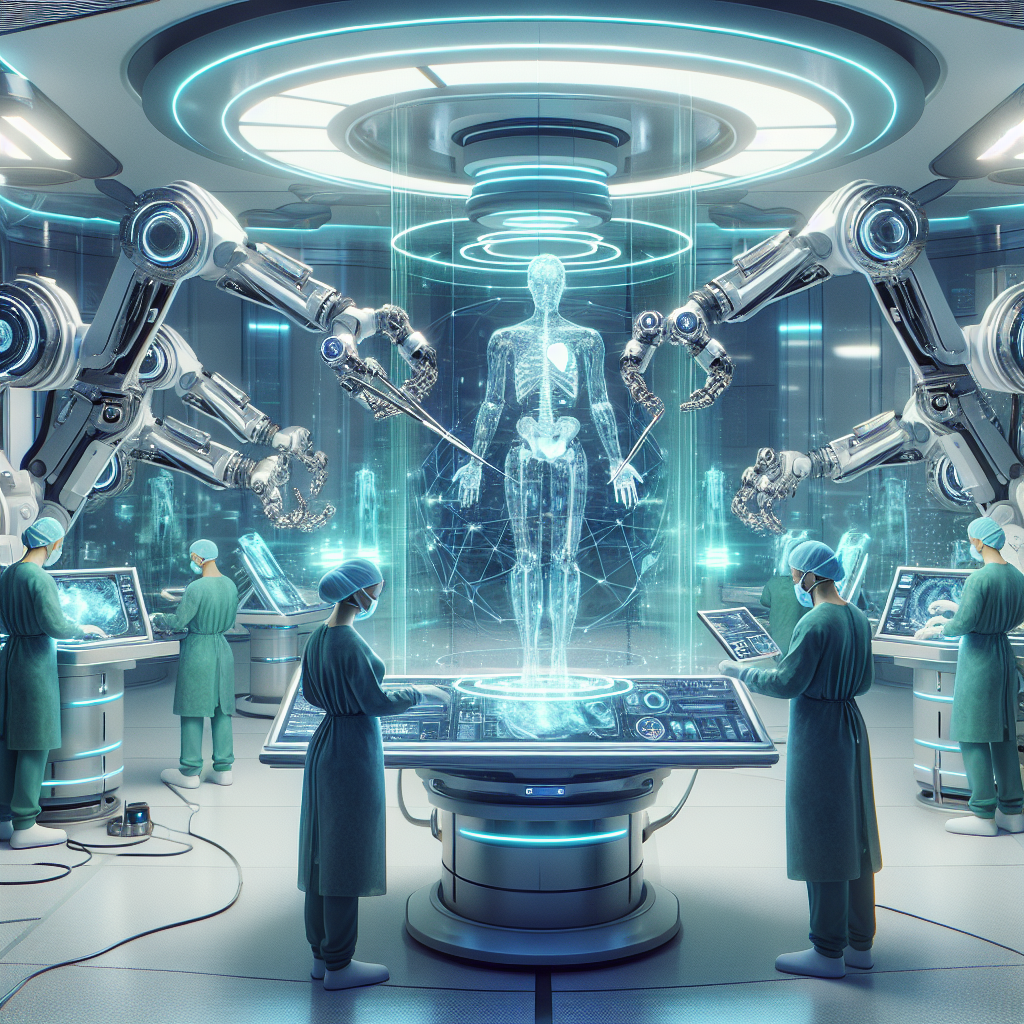The Future of AI in Surgical Procedures
Artificial intelligence (AI) has been making significant strides in various industries, and healthcare is no exception. In recent years, AI has been increasingly used in surgical procedures to improve outcomes, reduce complications, and enhance overall patient care. With advancements in technology and machine learning algorithms, the future of AI in surgical procedures looks promising, with the potential to revolutionize the way surgeries are performed.
AI in Surgical Planning
One of the key areas where AI is making a significant impact in surgical procedures is in surgical planning. AI algorithms can analyze medical images, such as MRI scans and CT scans, to create detailed 3D models of a patient’s anatomy. This allows surgeons to accurately plan the surgical procedure, identify potential risks, and optimize the surgical approach. By using AI in surgical planning, surgeons can better visualize the surgical site, leading to more precise and effective procedures.
AI in Surgical Assistance
Another important application of AI in surgical procedures is in surgical assistance. AI-powered robotic systems can assist surgeons during procedures by providing real-time feedback, guidance, and assistance. These robotic systems can perform precise movements and tasks that may be difficult for human hands to accomplish. By using AI-powered robotic systems, surgeons can perform complex procedures with greater precision and accuracy, leading to improved patient outcomes and reduced complications.
AI in Surgical Training
AI is also being used in surgical training to help trainee surgeons develop their skills and expertise. Virtual reality simulations powered by AI algorithms can provide realistic surgical scenarios for trainee surgeons to practice on. These simulations can help trainee surgeons improve their surgical techniques, decision-making skills, and overall proficiency. By using AI in surgical training, the next generation of surgeons can be better prepared to perform complex procedures with confidence and precision.
AI in Surgical Monitoring
AI is also being used in surgical procedures to monitor patients during and after surgery. AI algorithms can analyze real-time data from monitoring devices, such as heart rate monitors and blood pressure monitors, to detect any signs of complications or abnormalities. By using AI in surgical monitoring, healthcare providers can quickly identify potential issues and intervene before they escalate, leading to improved patient safety and better outcomes.
Challenges and Considerations
While the future of AI in surgical procedures holds great promise, there are also challenges and considerations that need to be addressed. One of the main challenges is the need for regulatory approval and validation of AI algorithms for use in surgical procedures. Healthcare regulatory bodies need to ensure that AI algorithms are safe, accurate, and effective before they can be used in clinical settings. Additionally, there are concerns about the potential ethical implications of using AI in surgical procedures, such as issues of patient privacy, data security, and transparency.
Another consideration is the need for healthcare providers to receive proper training and education on how to use AI in surgical procedures effectively. Surgeons and other healthcare professionals need to understand how AI algorithms work, how to interpret the results, and how to integrate AI into their clinical practice. Without proper training and education, the full potential of AI in surgical procedures may not be realized.
FAQs
Q: How is AI being used in surgical planning?
A: AI algorithms can analyze medical images, such as MRI scans and CT scans, to create detailed 3D models of a patient’s anatomy. This allows surgeons to accurately plan the surgical procedure, identify potential risks, and optimize the surgical approach.
Q: How is AI being used in surgical assistance?
A: AI-powered robotic systems can assist surgeons during procedures by providing real-time feedback, guidance, and assistance. These robotic systems can perform precise movements and tasks that may be difficult for human hands to accomplish.
Q: How is AI being used in surgical training?
A: Virtual reality simulations powered by AI algorithms can provide realistic surgical scenarios for trainee surgeons to practice on. These simulations can help trainee surgeons improve their surgical techniques, decision-making skills, and overall proficiency.
Q: How is AI being used in surgical monitoring?
A: AI algorithms can analyze real-time data from monitoring devices, such as heart rate monitors and blood pressure monitors, to detect any signs of complications or abnormalities. By using AI in surgical monitoring, healthcare providers can quickly identify potential issues and intervene before they escalate.
In conclusion, the future of AI in surgical procedures looks promising, with the potential to improve outcomes, reduce complications, and enhance overall patient care. By leveraging the power of AI in surgical planning, assistance, training, and monitoring, surgeons can perform complex procedures with greater precision and accuracy, leading to better patient outcomes and improved healthcare delivery. As AI continues to evolve and advance, the possibilities for its use in surgical procedures are endless, and the impact on the field of surgery is likely to be profound.

